Audiovisual Equipment in the UAE: Types, Uses, and an Event Checklist
Events can be stressful for AV fans, especially when you think about all the gear one must remember to carry along.
Well, you don't have to worry if your biggest fear is getting that horrible knot in your stomach when you forget something, because we've put together this complete guide to all audiovisual equipment in the UAE, including types, functions, and an event checklist, so you'll never forget anything again.
So, we've got you covered for your first and all the following events.
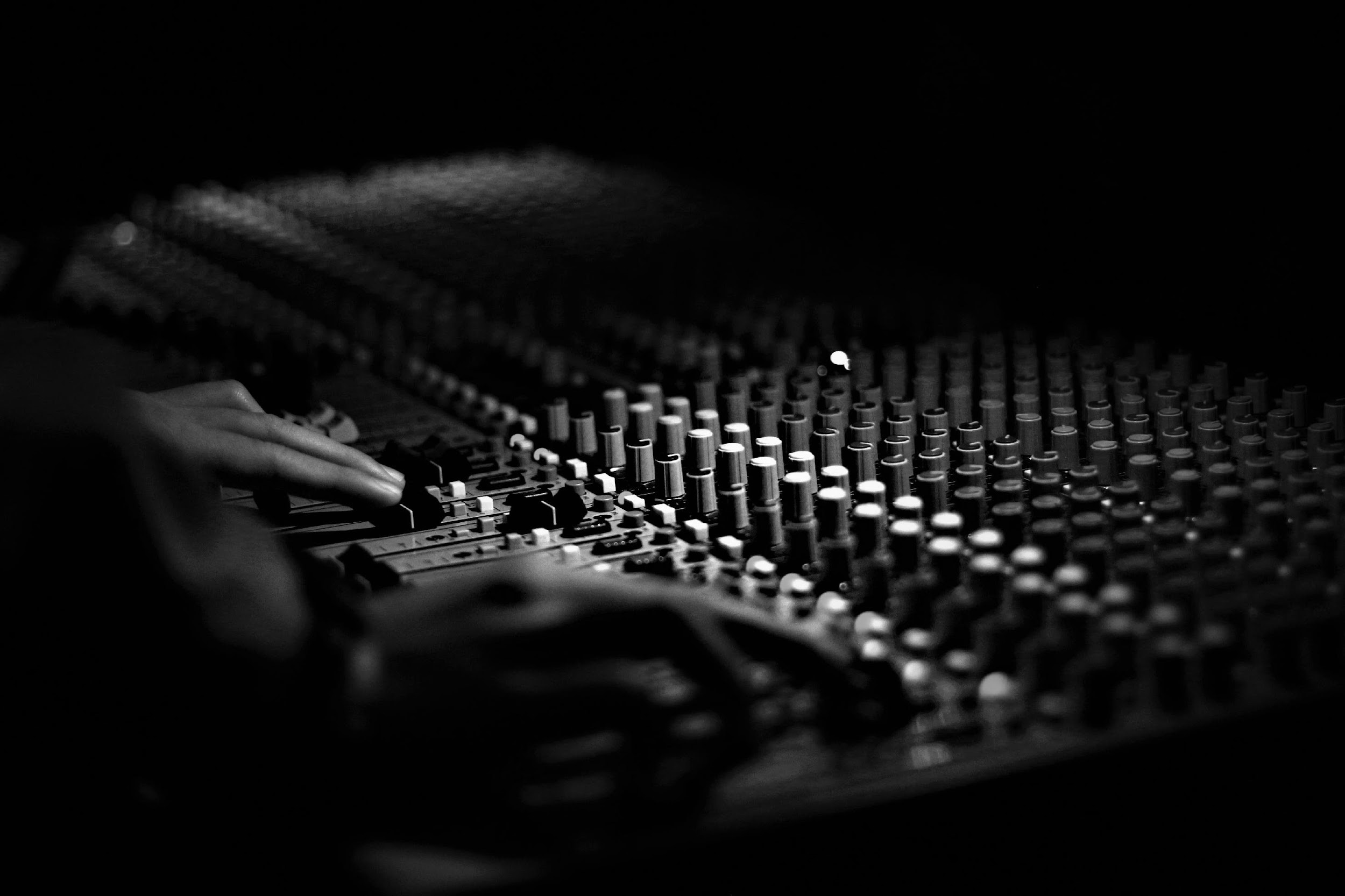
What is audio visual equipment?
Before we get into the details, let's go over some basics for those who aren’t much aware of AV. Audio visual equipment in the UAE is made up of technical equipment that can both play sound and display pictures/videos. This includes speakers, monitors, microphones, and anything else that projects, processes, or makes sounds or images.
When it comes to events, audiovisual equipment near Dubai is anything that can be used for both sound and sight at big or small AV events. Most events will need audiovisual equipment for entertainment and
Production value. Good audio-visual equipment can have a big impact on the success of your event.
The Audio visual system suppliers in our online directory have a wide range of audiovisual equipment that can make your event wholesome and help you present a project that looks professional.
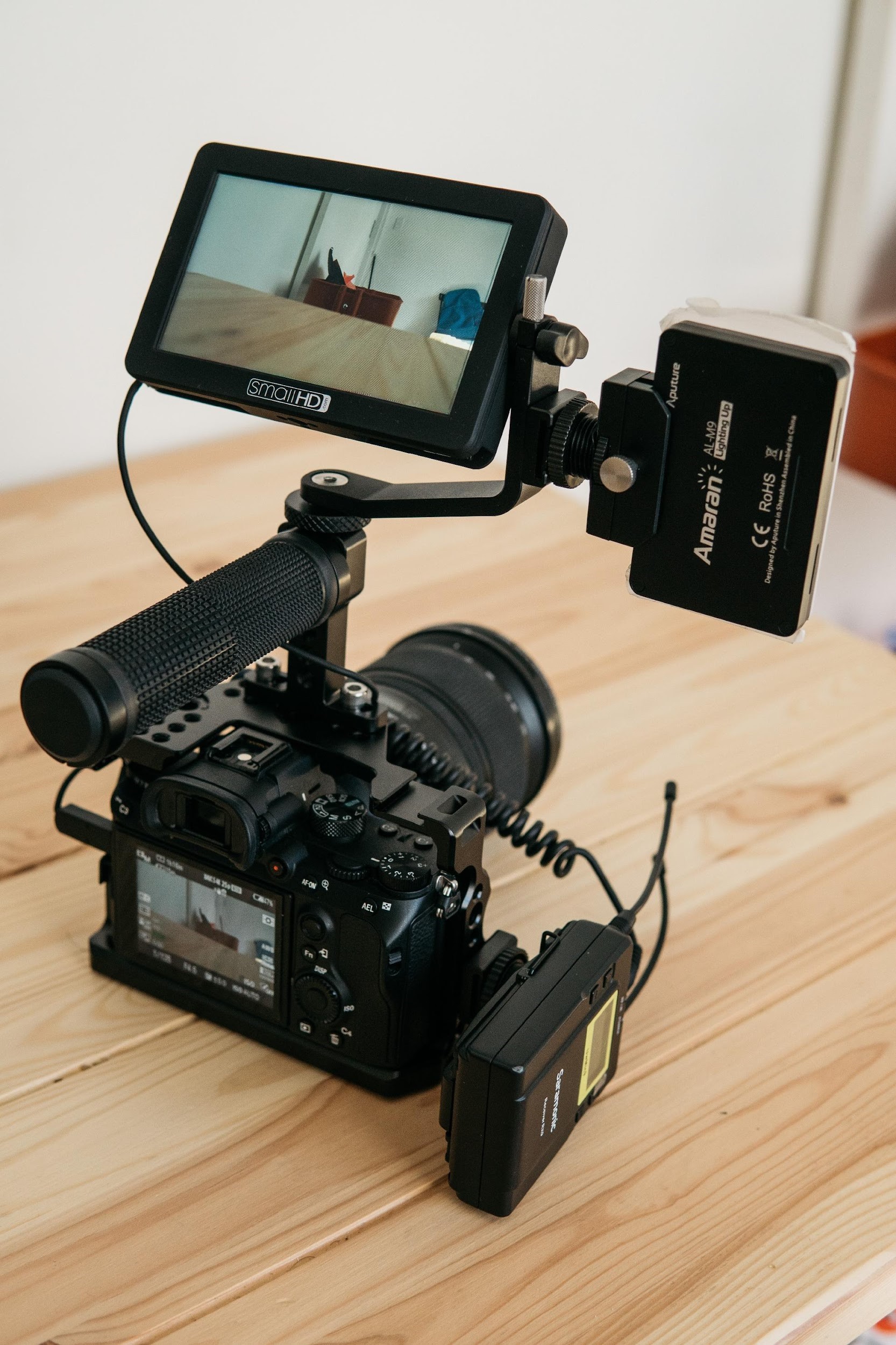
Types of audio-visual equipment
There are many different types of audio visual equipment, each with its own specific uses and applications. Some common types of audio-visual equipment in Dubai and their uses include:
Cameras:
- Digital cameras: Devices that use digital sensors to capture and record still photos and video. They can be used for a wide range of applications, including photography, videography, journalism, and documentarians.
- Camcorders: Devices that are specifically designed for recording video. They typically have built-in microphones and can be handheld or mounted on a tripod. Camcorders are commonly used for event videography, home movies, and newsgathering.
- Smartphones with cameras: Many modern smartphones have high-quality cameras that can capture and record both still photos and video. They are convenient and portable, making them a popular choice for casual photography and videography.
Microphones:
- Lavalier microphones: small microphones that are worn on the body and used to capture audio near the source. They are commonly used in television and film production, as well as in presentations and interviews.
- Shotgun microphones: Long, narrow microphones that are designed to pick up sound from a specific direction. They are often used in newsgathering and film production, as well as for capturing sound in outdoor environments.
- Handheld microphones: Microphones that are held in the hand and used to capture audio in a variety of settings. They are commonly used in live music performances, public speaking, and interviews.
Speakers:
- Desktop speakers: small speakers that are designed to be used with a computer or other desktop device. They are often used in office environments or for casual listening at home.
- Portable speakers: Small, portable speakers that are designed to be carried around and used on the go. They are often used at outdoor events, parties, or for listening to music while traveling.
- Home theater speakers: large speakers that are designed to be used in a home theater setup. They are typically used in conjunction with a surround sound system and a large display, such as a television or projector, to create an immersive audio-visual equipment experience.
Headphones:
- Over-ear headphones: Headphones that are worn over the ears and are designed to fully enclose the ear. They are often used for listening to music, watching movies, or gaming.
- On-ear headphones: Headphones that are worn on the ears and rest on top of the ear. They are often used for listening to music, watching movies, or making phone calls.
- Earbuds: Small, portable headphones that are designed to be worn in the ear. They are often used for listening to music or making phone calls on the go.
Mixers:
- Audio mixers: Devices that are used to combine multiple audio signals into a single signal. They are commonly used in recording studios, television studios, and live events to mix multiple microphones and other audio sources together.
- Video mixers: Devices that are used to combine multiple video signals into a single signal. They are commonly used in television studios, live events, and video production to switch between multiple cameras and other video sources.
Monitors:
- Computer monitors: Devices that are used to display the output from a computer. They are commonly used in office environments, for home computing, and for gaming.
- Television monitors: Devices that are used to display television programming and other video content. They are commonly used in homes, hotels, and other public places.
- Video monitor walls: large arrays of monitors that are used to.
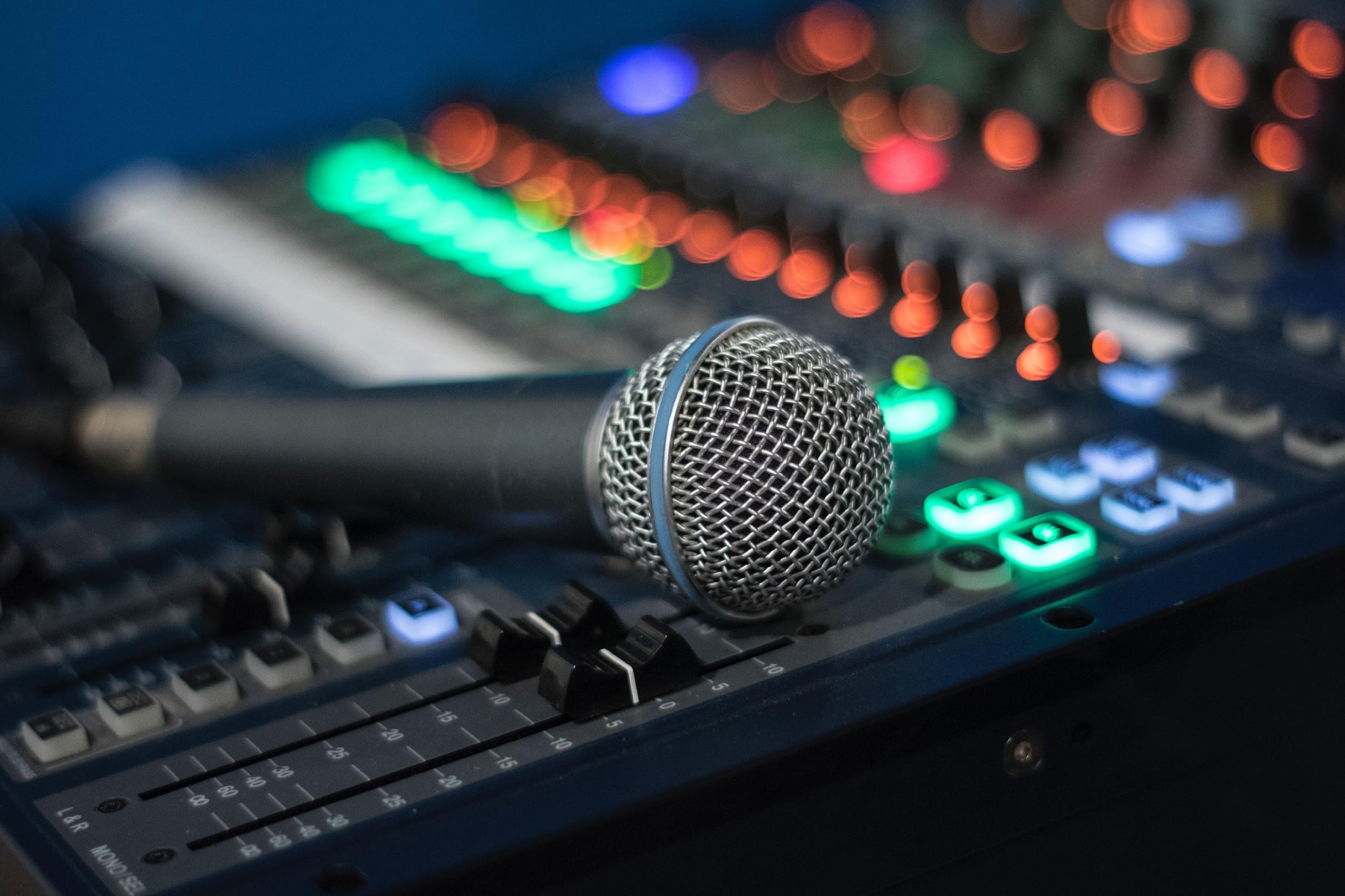
Why audio-visual equipment is important
Audio visual equipment in Dubai is important because it allows us to capture, record, and reproduce audio and video content. This content can be used for a wide range of purposes, including entertainment, education, communication, and documentation.
In the entertainment industry, audio visual equipment companies use these to create movies, television shows, music recordings, and live events. These devices allow filmmakers, musicians, and other artists to capture and create audio and video content that can be enjoyed by audiences around the world.
In the education industry, audio visual equipment in UAE is used to create educational videos and recordings, as well as to facilitate live online classes and webinars. These devices allow educators to share knowledge and information with students in an engaging and interactive way.
In the communication industry, audio visual equipment near Dubai is used to create video conference calls and online meetings, as well as to facilitate video calls and messaging between individuals. These devices allow people to stay connected and communicate with each other remotely.
In the documentation industry, audio visual equipment companies in Dubai use to record events and activities, as well as to create documentaries and news stories. These devices allow us to document and preserve important events and information for future generations.
Overall, audio visual equipment is important because it allows us to create, share, and preserve audio and video content for a wide range of purposes.
Checklist of audio-visual equipment for events
We hope that we haven't scared you away from events, but rather inspired you to find the best solutions for your needs and AV project. So, what do we need to have an event? Well, that depends on your project and what you want to do. But we've included a list of things that could help you choose a few things. Let's talk about them:
Microphones
No one wants to feel left out at an event, so it's important that your audience hears everything your presenters say. Consider putting microphones in your event so that everyone can hear. This is a great way to quickly bring people together and get their attention. Now, no two microphones are the same, so let's go over some options:
Wired or wireless?
If you want a completely reliable way to project sound, wired microphones are a good choice, but your presenters will have less freedom to interact with the audience. Non-wired microphones are a good choice if your event depends on audience participation. This gives your presenters the freedom to move around the room as they please.
But wireless microphones can lose frequency, which can cause the sound to stop and make your event less smooth.
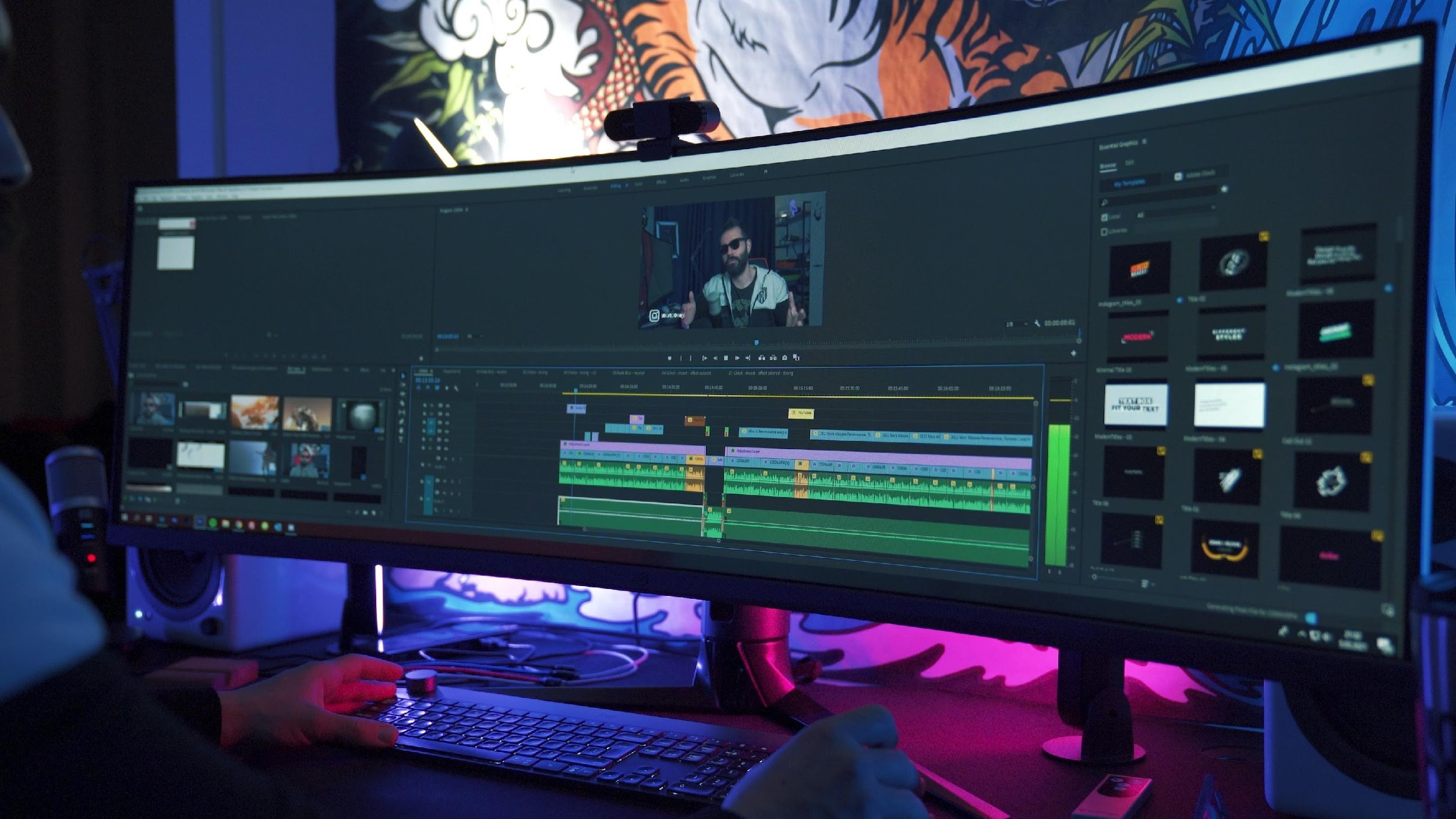
How many mics do you have?
How you answer this question depends on how big your production is. If you have more than one presenter, you could want to have two or three back-ups for each one. This means that you probably won't run out of microphones on the day of your event, even if one suddenly stops working.
Electrical supply
It is crucial to the success of your presentation that you make sure you have enough
electricity for your event. If your production uses a lot of energy, you need to think about the venue's limits to make sure you have a steady flow of electricity that doesn't slow down your systems.
Should I get a back-up power source?
The answer to this question depends on your project and where your event will be held. If your presentation has a high production value and many systems are running at the same time, you can want to buy or rent generators to boost the power supply. Most large venues can already be able to do this, so you could find out about your venue ahead of time.
Technicians
Technicians are needed to run your audio-visual equipment in Dubai, such as cameras, audio, video, and lighting. These experts can quickly find and fix any problems that could affect your presentation before they get worse.
How many tech people do I need?
Here's another time when the size of your project makes a difference. It would be best to hire a professional to run each audio-visual equipment near Dubai. For example, you can want a technician to run your video wall's processors and matrices. You can also want a professional to run your cameras, sound, and
lights.
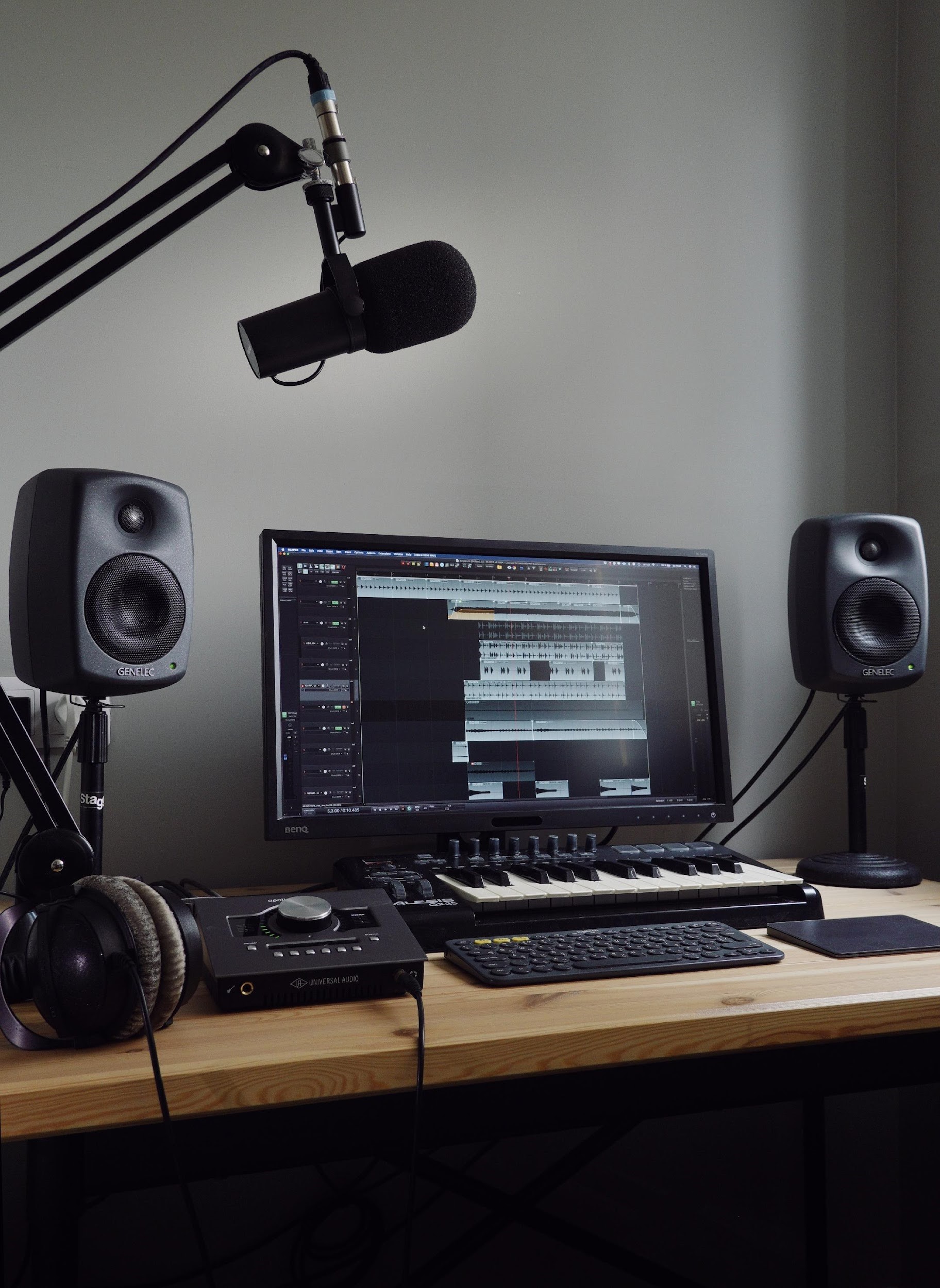
Technicians
Video walls are a great choice for people who want to improve the quality of their productions. These walls are made up of many monitors that can show one or more coherent images. They are great for showing a lot of information at once and bringing people together with information that is clear and easy to understand. Audio visual system suppliers in the UAE, they have a wide range of video wall processors that can help you with your event. Check out our full selection today!
How should I set up a video wall?
How you choose a video wall can depend on a few things. This can include the goal of the project, the size of the audience, and the budget.
LED walls and rear-projected cubes can be better for users who need a screen for a large venue, while LCD panels can be better for users who need a cheaper option.
Useful audio-visual equipment tips
Now that you know what equipment you need, here are some very helpful tips on how to put on a successful AV event:
1. Each presenter can need a different set of tools
Depending on which part of the presentation a presenter oversees, they can need different
tools. This can be done with different microphones or other equipment, like projectors for a presentation or clickers to help them move through the slides on their own. When you're planning your event, you could want to spend some time writing down what each presenter needs for their part.
2. Check the audio-visual equipment in UAE at the venue before setting it up.
There's no reason to spend a lot of money on equipment if your venue already has it. Before your event, you could want to talk to the venue manager about their current audio-visual equipment company in UAE and see if they have any of the things you need. You can save a lot of time and money by doing this.
3. Think about the needs of your project
Instead of basing your event and audio-visual equipment on what other people have done, you should think about what your project needs. This makes sure you only buy the audio-visual equipment in Dubai you need and don't waste time or money on things you could never use. This is also important so you can think about your own AV skills and make sure you don't make your event too complicated, which increases the chance of a system failure.




